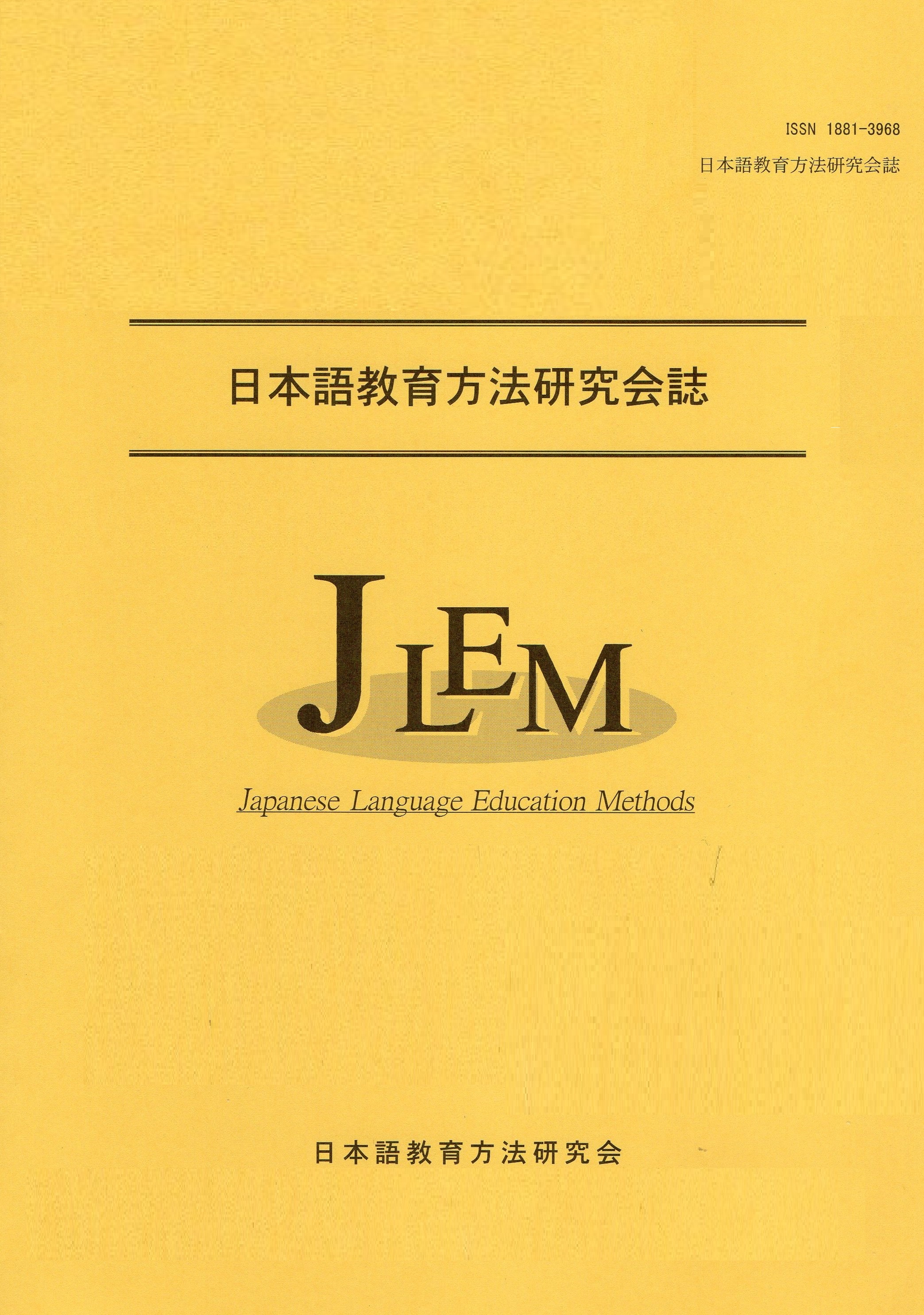9 巻, 2 号
選択された号の論文の20件中1~20を表示しています
- |<
- <
- 1
- >
- >|
-
原稿種別: 表紙
2002 年9 巻2 号 p. Cover1-
発行日: 2002/09/21
公開日: 2017/06/16
PDF形式でダウンロード (35K) -
原稿種別: 目次
2002 年9 巻2 号 p. Toc1-
発行日: 2002/09/21
公開日: 2017/06/16
PDF形式でダウンロード (59K) -
原稿種別: 本文
2002 年9 巻2 号 p. 2-3
発行日: 2002/09/21
公開日: 2017/06/16
PDF形式でダウンロード (315K) -
原稿種別: 本文
2002 年9 巻2 号 p. 4-5
発行日: 2002/09/21
公開日: 2017/06/16
PDF形式でダウンロード (276K) -
原稿種別: 本文
2002 年9 巻2 号 p. 6-7
発行日: 2002/09/21
公開日: 2017/06/16
PDF形式でダウンロード (255K) -
原稿種別: 本文
2002 年9 巻2 号 p. 8-9
発行日: 2002/09/21
公開日: 2017/06/16
PDF形式でダウンロード (262K) -
原稿種別: 本文
2002 年9 巻2 号 p. 10-11
発行日: 2002/09/21
公開日: 2017/06/16
PDF形式でダウンロード (261K) -
原稿種別: 本文
2002 年9 巻2 号 p. 12-13
発行日: 2002/09/21
公開日: 2017/06/16
PDF形式でダウンロード (284K) -
原稿種別: 本文
2002 年9 巻2 号 p. 14-15
発行日: 2002/09/21
公開日: 2017/06/16
PDF形式でダウンロード (312K) -
原稿種別: 本文
2002 年9 巻2 号 p. 16-17
発行日: 2002/09/21
公開日: 2017/06/16
PDF形式でダウンロード (341K) -
原稿種別: 本文
2002 年9 巻2 号 p. 18-19
発行日: 2002/09/21
公開日: 2017/06/16
PDF形式でダウンロード (448K) -
原稿種別: 本文
2002 年9 巻2 号 p. 20-21
発行日: 2002/09/21
公開日: 2017/06/16
PDF形式でダウンロード (245K) -
原稿種別: 本文
2002 年9 巻2 号 p. 22-23
発行日: 2002/09/21
公開日: 2017/06/16
PDF形式でダウンロード (279K) -
原稿種別: 本文
2002 年9 巻2 号 p. 24-25
発行日: 2002/09/21
公開日: 2017/06/16
PDF形式でダウンロード (324K) -
原稿種別: 本文
2002 年9 巻2 号 p. 26-27
発行日: 2002/09/21
公開日: 2017/06/16
PDF形式でダウンロード (240K) -
原稿種別: 本文
2002 年9 巻2 号 p. 28-29
発行日: 2002/09/21
公開日: 2017/06/16
PDF形式でダウンロード (325K) -
原稿種別: 付録等
2002 年9 巻2 号 p. App1-
発行日: 2002/09/21
公開日: 2017/06/16
PDF形式でダウンロード (42K) -
原稿種別: 付録等
2002 年9 巻2 号 p. App2-
発行日: 2002/09/21
公開日: 2017/06/16
PDF形式でダウンロード (42K) -
原稿種別: 表紙
2002 年9 巻2 号 p. Cover2-
発行日: 2002/09/21
公開日: 2017/06/16
PDF形式でダウンロード (67K) -
原稿種別: 表紙
2002 年9 巻2 号 p. Cover3-
発行日: 2002/09/21
公開日: 2017/06/16
PDF形式でダウンロード (67K)
- |<
- <
- 1
- >
- >|
